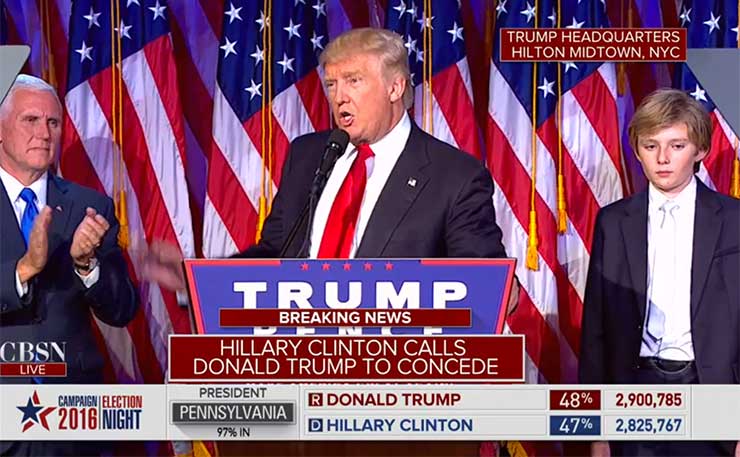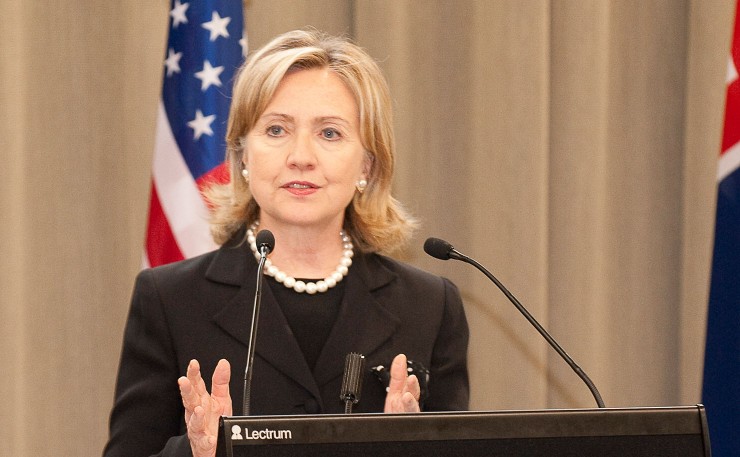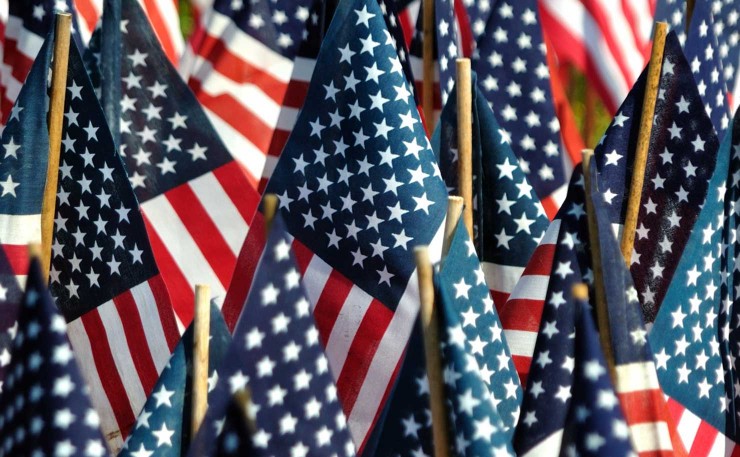What happened in – and to – America could happen in Australia, writes Xiaoran Shi. But there is a way to stop it.
It is often said that we can more readily imagine the end of the world than the end of capitalism. For many in the lead-up to the US presidential election, our fears of a Trump victory came to symbolise our fears of the fall of civilisation, but on Wednesday night, this is not what we got.
Our collective nightmares of the post-apocalyptic nuclear wasteland that would surely materialise as a result of Trump’s ascent were met with a rude awakening, a startling eruption of what has been bubbling under the surface for decades.
The neoliberal paradigm has failed to deliver on its promise of prosperity for most, and another four years of enduring suffocation under the status quo is no longer on the cards. We have reached a point in history where people are daring to court the possibility of the end of the world if it could spell the end of capitalism.
Particularly revealing was traditionally ‘blue’ states such as Michigan and Wisconsin flocking to vote Republican. The decline of the manufacturing industry in the final quarter of the 20th century has devastated entire communities. As steelworks, factories and manufacturing plants have fled offshore, so too has the hope of long-term, skilled employment for the millions living in areas that once prided themselves on their industrial production.
Devoid of economic, cultural and social capital, these voices of small town America turned to the seemingly last bastion of dissent still available: the polling booth. And it is precisely because Trump preached an anti-establishment solidarity with the downtrodden white poor, sensitive to the perceived anxieties posed by outsourced and immigrant labour, that he managed to blaze a trail to the White House.

Whether his rhetoric is to be trusted is another question entirely, especially when we consider the farcical irony of a billionaire corporate mogul with a track record of employee exploitation vowing to champion the cause of class struggle. However, the fact remains that regardless of how naïve, reductive or abjectly conservative Trump’s vision for an isolationist US economy is, his election marks the first time critique of free trade and the current neoliberal economic model has defined mainstream political debate and won.
That is not to say Trump has the slightest intention of dismantling prevailing systems of capitalism and instituting a socialist utopia. Far from it. Trump’s peculiar brand of anti-globalisation girded by a paranoid nationalism has been heavily reliant on vilifying minorities, migrants and progressive movements for the ‘un-great’ state in which the US presently exists.
Indeed, Trump makes no effort to obfuscate who he believes should inherit an America restored to its former glory. To him, the archetype of the “average American” is still the blonde, blue-eyed soldier of yesteryear, and unsurprisingly, it was largely those who can see themselves in this image (or the lineage of this image) answering his call to action on November 8.
But, this myopia should not serve to abrogate the seething antagonisms of the white poor — their grievances against disenfranchisement under late capitalism are legitimate, and to further demonise them as a venal body, terminally afflicted by the blight of bigotry (that is rarely seen to have a structural cause and is too often regarded as the natural disposition of the working class) is to sanction the acceleration of right-wing extremism.
Trump’s victory presents an unprecedented opportunity for reinvigorating broad-ranging critique and organisation against the glaring inequalities ushered in by neoliberalism, but we must not allow ourselves to, in the same breath, accept the fallacy that working class struggle is singularly motivated by xenophobia and misogyny, or that a politics of class is incompatible with one of identity.
To do so would be to surrender to the notion that the deployment of patriarchal and imperialist power are not inextricably linked to the functions of capitalism. To do so is to reify the neoliberal logic that propels discourses and movements of emancipation into laissez-faire competition with each other, and which ultimately enforces a kind of ideological austerity: economic or social liberation? Because you cannot have both.
Beyond this, the US election has also brought to light the gross inadequacies of Western liberal democracy. The false dichotomy between Trump’s fear-mongering class critique and Clinton’s neoliberal progressivism encapsulates the illusion of choice that has come to characterise bipartisan politics.

Furthermore, popular support from the primaries to the presidency of a candidate who is for all intents and purposes a political outsider, elucidates the sheer desperation of major sections of the US population to provoke change from within a system that has rarely benefitted them, and arguably has scarce interests aside from reproducing itself.
This is not a situation unfamiliar to the Australian context. The two major parties share a history of legislating identically (albeit temporally apart) on almost every issue, including but not limited to immigration, climate change and Indigenous affairs.
Labor has ostensibly opposed the Coalition on multiple occasions of especially heinous policymaking, such as the recent bill to impose a “lifetime ban” on refugees, yet its efforts have proved little more than reactionary and in the case of asylum seeker policy, has proven to be grossly hypocritical when taking into account Labor’s own support for the introduction of offshore processing during the Howard years.
Convergence upon a centre-right position, compounded by the steadfast refusal of both parties to address economic inequality and the depredation of the labour movement set in motion by Howard’s vicious industrial relations reforms have led to a significant swing in the number of votes for the Greens, as well as other independent and fringe parties, the most notable example being the election of four One Nation members to the senate.
Needless to say, a much more nuanced analysis is required to explain the resurgence of One Nation and similar groups appealing to a far-right populism in the current political landscape. But if we are to heed Trump’s rise to power and prevent history repeating itself, then it is time to shed complacency in the fantasy of a thriving multicultural egalitarianism and acknowledge that Australia contains all the elements necessary for a Trumpland of our very own making.
This is something to truly fear, but rather than lie in paralysis or pin our hopes on a more palatable candidate leading us to liberation, we must divest our energies from the decaying institution of parliamentary politics and reinvest in building up our communities, our mass movements and each other.
Donate To New Matilda
New Matilda is a small, independent media outlet. We survive through reader contributions, and never losing a lawsuit. If you got something from this article, giving something back helps us to continue speaking truth to power. Every little bit counts.





